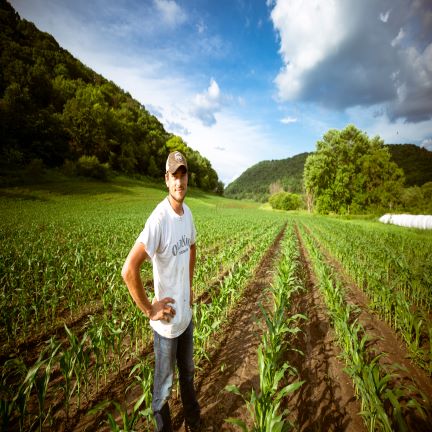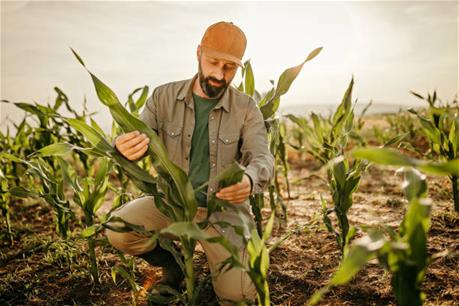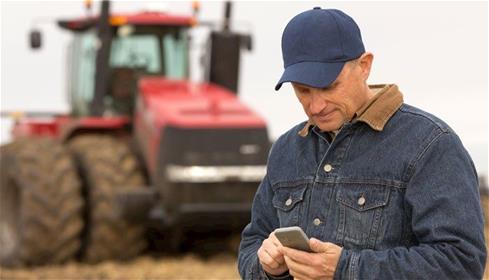
As agriculture continues to grow and change in numerous ways, farmers are forced to alter their means of tending to their operations. Whether it's the fluctuation of prices, the uncertainty of the environment, family structure, or bureaucracy, farming is associated with many stressors that are detrimental to mental health. According to the HUNT Study, one of the largest health studies ever done to monitor the mental health of farmers,  "Mental illness appears to be particularly stigmatizing in farming communities, and farmers seem reluctant to contact the health care system for help for mental health problems" (Torske, 2016). Mental health is a rising issue within our entire society, but why are farming communities effected most heavily, and how can we prevent it?
"Mental illness appears to be particularly stigmatizing in farming communities, and farmers seem reluctant to contact the health care system for help for mental health problems" (Torske, 2016). Mental health is a rising issue within our entire society, but why are farming communities effected most heavily, and how can we prevent it?
Mental health includes our emotional, psychological, and social well-being. It influences the way we think, feel, and act in certain situations, stressful or not. When someone's mental health is unstable, they may struggle to create and maintain relationships and have trouble keeping up with the demands of everyday life. The past few years have been especially tough on farmers which has led to higher rates of stress, mental illness, and suicide within farming families. Not only are the farmers under these stressors, but their family is often presented with similar challenges as they face these troubled times.
What do I do if someone I know is struggling with depression?
The first thing to note is there are many kinds of depression. The most common is Major Depressive Disorder, and it occurs in differing degrees. Some symptoms include: depressed mood, change in sleeping (either too much or too little) patterns, change in weight or appetite, slowed movements, inability to experience pleasure, withdrawal from family and friends, fatigue or loss of energy, trouble concentrating, feelings of hopelessness, and thoughts of suicide (NASD, 2020). Families of farmers may be the first to notice these changes in their loved one, and it is important that they take the necessary actions as soon as possible. The first steps are to ask them how they're really doing, aside from the usual shop talk about prices and weather. Ask them specifically if they are thinking about suicide, and take everything they say seriously. Tell another family member or friend of theirs about their struggles, so you are not handling it on your own. Also, give them the time and space they need to talk about the situation, encourage them to seek professional help, and offer to accompany them to any appointments. Be prepared for the unexpected, and be prepared to not know what to say or do. Nevertheless, mental health is not an easy topic to talk about, especially when the other person is in so much pain they they do not see a way out. The important thing to remember is you'll never regret asking, but you'll always regret not asking when it's too late.
feelings of hopelessness, and thoughts of suicide (NASD, 2020). Families of farmers may be the first to notice these changes in their loved one, and it is important that they take the necessary actions as soon as possible. The first steps are to ask them how they're really doing, aside from the usual shop talk about prices and weather. Ask them specifically if they are thinking about suicide, and take everything they say seriously. Tell another family member or friend of theirs about their struggles, so you are not handling it on your own. Also, give them the time and space they need to talk about the situation, encourage them to seek professional help, and offer to accompany them to any appointments. Be prepared for the unexpected, and be prepared to not know what to say or do. Nevertheless, mental health is not an easy topic to talk about, especially when the other person is in so much pain they they do not see a way out. The important thing to remember is you'll never regret asking, but you'll always regret not asking when it's too late.
What do I do if I am struggling with depression?
It is particularly important that farmers manage stress. When things get tough, it is crucial that they work smarter, not harder. Getting sufficient sleep is essential, and instead of keeping things to themselves, they should talk about the concerns with trusted family and friends. Reach out to professionals, and get the treatment that is needed per the situation. The most significant thing to note is that it is okay to not be okay. Keep yourself and your operation positive and productive throughout each season.
National Suicide Prevention Lifeline: call 1-800-273-TALK (8255), available 24/7
Crisis Text Line: text HELLO to 741741, available 24/7